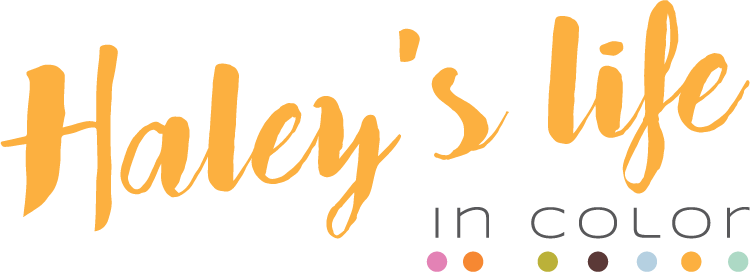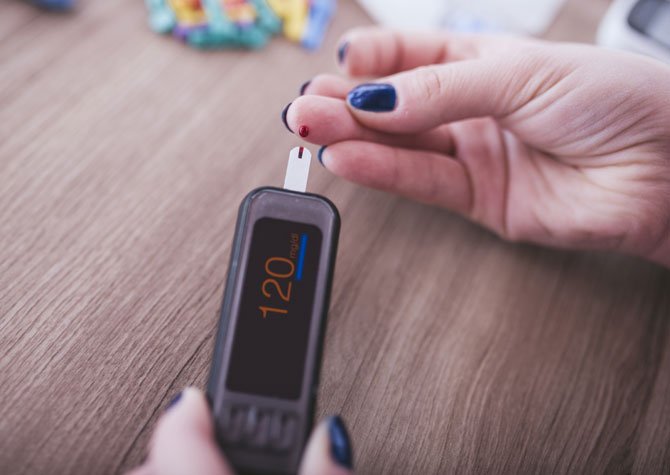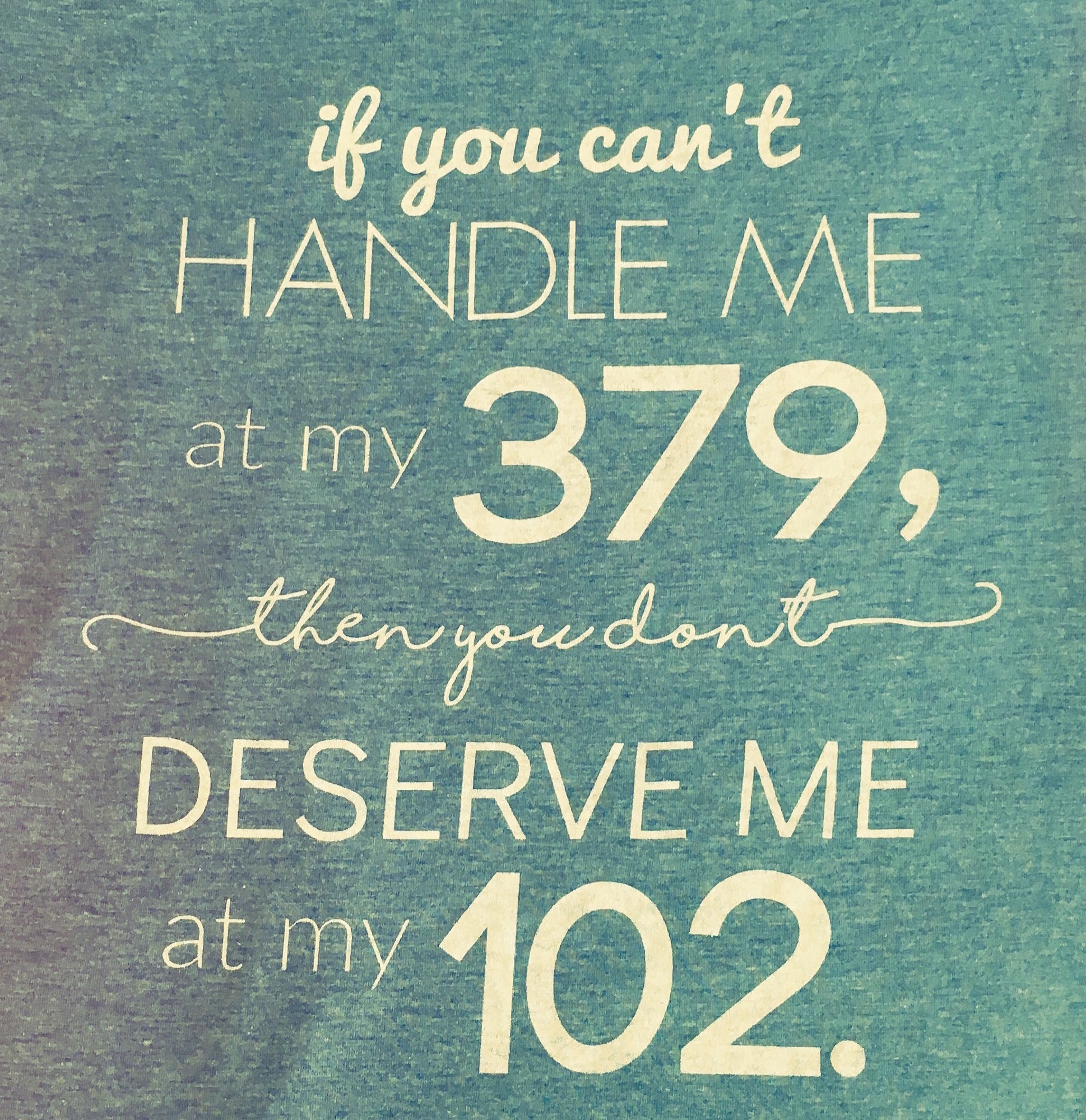Eight years ago on this very day, my life changed forever.
I got in the passenger’s seat of my mom’s car in the carpool line after school. As always, she asked how my day was. And as always, I gave the standard response of any angsty almost-sixteen-year-old: “Not very good.”
“Well, it’s about to get worse,” she told me with a sympathetic smile. Her voice sounded shaky.
“The doctor called today. You have diabetes. The insulin kind.”
____________________________________________________________________
I had gone to my pediatrician the previous day for my yearly school-required check-up. I didn’t think there was anything worth mentioning, but my mom did.
She explained to my doctor that I had been filling our recycling bin to the brim every day with bottles of water. I had countered that it was because I was spending the dog days of summer lying on my deck, tanning.
The sun makes you thirsty.
She continued that I had been getting up several times each night to go to the bathroom.
That’s from all that water I’ve been drinking.
She explained that I had been getting up from the dinner table each night and heading immediately for the snack pantry. My hunger was never satisfied.
It’s just my sweet tooth.
Well, something was sweet alright – my blood sugar.
__________________________________________________________________
While I was at school, finally getting into the swing of my sophomore year in high school, my mom had received a call from the doctor, explaining that my blood sugar was in the high 400s. It should have been no more than 100.
In the carpool line, my mom explained over my tears that I had an appointment that very afternoon with a specialist.
“It can’t wait until tomorrow?” I sobbed. “No, the doctor said it couldn’t wait.”
The thing that frustrates me the most when I look back on that initial memory of the worst day of my life is how naïve I was. I was crying over something I knew nothing about. I was crying because I thought I’d have to give myself a shot once a day.
Little did I know that giving shots would be the easiest part of the rest of my life.
____________________________________________________________________
My mom and I spent the next five or so hours in a doctor’s office. We received a crash course in Type 1 Diabetes – and crash is exactly what I did. I sobbed. I yelled at the nurse.
She had forced me to practice my first injection right then and there – on my mom. (It was just salt water.) I screamed at that poor woman in refusal, but she wouldn’t let up.
On the way home that night, I told my mom I didn’t want to live anymore.
To think how heartbreaking that must have been for her to hear makes me want to go back in time. But in that moment, after being pelted with hour’s worth of instructions and details of how my life would never be the same, I truly thought it would be easier not to live one at all.
__________________________________________________________________
Although my diabetes diagnosis seemingly came out of the clear blue, medical problems were not so new to me.
From first grade until about fourth grade, I spent more time in hospitals and doctor’s offices than most people will in a lifetime. My hair was falling out in clumps, I was constantly sick, I would get spontaneous rashes, and I had the energy of an 80-year-old. I was six.
I was constantly at the Boston Floating Hospital for Children. I was so unbelievably terrified of needles (how ironic!) that my poor father had to take the day off of work whenever I needed a blood test and he and my poor mother had to take me into Boston for the day, hold me down while my blood was taken, listen to my screams, revive me when I passed out, and buy me a toy afterwards as bribery.
It was believed that I had lupus – I had 10 of the 11 criteria – but a concrete diagnosis was never reached. In hindsight, all signs point to my illness during that time being linked to diabetes.
_________________________________________________________________
My mom’s phone had been ringing off the hook from my father, away on a business trip, and my brothers, away at school. They had no idea what had happened. We drove to CVS in the dark, silently sobbing along the way. In the parking lot, we tried to test my blood sugar with the meter that I was given.
It wasn’t working. We both sat there panicking, until my mom ran inside to cut the line and ask for help from the pharmacist. Turns out we had the test strip in upside down. Oops!
We then had to get me something to eat, because from this point forward, I’d have to eat on a schedule. Whether I was hungry or not, I’d have to eat to balance out the insulin I’d constantly be taking. This early in the game, every minute counted. But if I was starving and it wasn’t a meal time…tough. I’d have to watch my friends eat what they wanted, when they wanted. You don’t know how painful that is – especially as a kid – until it’s life or death. Also, if I was full midway through my meal, it didn’t matter. I’d have to force that food down, because I had already accounted for the carbs and given myself a certain amount of insulin based on the algorithm given to me. I weighed every single morsel of food that went into my body on an advanced food scale in order to calculate the exact number of carbs.
Thankfully, the aforementioned rigidity has loosened a lot over the years, now that I know the signs of my body and how to treat it. However, I still have to account for every carb I eat.
__________________________________________________________________
From that nightmarish doctor’s visit on, my nurse practitioner became like my prison warden. Except the prison was my body. My mom had to call her at every single meal time, and my nurse would tell her what she could cook for me – including how and in what portions. If I wanted a snack, I could only eat sugar-free Jello. Man, those first few weeks were bland.
I wasn’t allowed to go to school because it was too dangerous to be there while my body adjusted to its new regimen. You don’t realize how much you love school until you aren’t allowed to go. After a few days, the warden let me go to driver’s ed class.
My new diagnosis gave me some serious perspective. I realized that I had really been starting to feel comfortable in my own skin. I was more social and relaxed in school and driver’s ed. I was making friends outside of my usual group. I felt like a part of something.
That all seemed to come crashing down so quickly. I didn’t even feel comfortable in my own body anymore – how could I feel comfortable around anyone else? My peers weren’t sure how to treat me. That first day back at driver’s ed, we all went to Bertucci’s to get rolls of bread – random, but our group tradition during our break nonetheless. I couldn’t eat one. It sounds so silly, but that absolutely killed me. It wasn’t about the roll, obviously. It was about the fact that I knew I would never be a normal teenager again. I would never be carefree and spontaneous. And I may never be understood.
I got in the car when my mom picked me up, and I bawled the whole way home.
_____________________________________________________________________
Over the years, I’ve gotten so much more comfortable with myself and my disease. I’m not ashamed of it, and I am generally pretty open about it.
I shocked everyone – myself included – when I went off to the University of Miami for college. It was the only school I applied to that wasn’t a car ride away from home, and I didn’t know a soul there.
I had never been away from the cocoon of my parents. I had never been far from my doctor. I had never had to worry about keeping stock of my crazy amount of medical supplies and figuring out how they would get to me. I had never had to introduce my disease to a new group of people, because my existing friends had watched the diagnosis happen.
Honestly, it was the greatest decision I’ve ever made.
I am so lucky to have been welcomed into the most kind-hearted group of girls, my DPhiE sorority sisters at Miami. They helped me embrace who I am. Another thing that having Type 1 diabetes has taught me is to appreciate the little things. My friends may never realize how much it means to me when they carry an extra snack around in case I go low, or when they ask for detailed information of my medical needs to keep in a note on their iPhone, or when they stay sober once in a while so they can worry about my blood sugar while I get to drink.
I showed up to a 6am tailgate (no, not a typo) one morning to find that my friend Ally had made me a PB&J sandwich so that I wouldn’t go low before the game. Some friends even gave me my shots when I broke my wrist – they offered! A few friends have simply asked for my finger and proceeded to test my blood without me asking when I’ve been too ‘under the weather’ to do it myself. Now that is love.
During sorority recruitment my senior year, I was asked to write a letter about how my sisters had helped me overcome my struggles, and read it in a room full of potential new members. My sisters cried with me as my voice cracked and held my hand while it shook. I honestly don’t remember a time when I was so emotional, and of course it had to be in a room full of people. But I am so thankful for that experience. It was extremely draining but even more therapeutic. And it just solidified how much a group of good people can change your life. On bid day that year, several new members came up to me and told me my story was the reason they joined.
I’ve dealt with more than my fair share of ignorant people throughout my time with this disease. But you know what? It just makes me appreciate the good ones so much more. I won’t spend my time – or yours – telling you stories about mean things people have said to me along the way, but I will tell you that every caring comment, every question of interest about my disease, and every “I’m proud of you” trump those tenfold.
____________________________________________________________________
I like to think that everything happens for a reason. I’m not sure what the reason is for the existence of debilitating diseases, but if they have to affect people, I understand why I’m one of them.
I have the most amazing family you will ever meet. They are so supportive of me, and I know that each of them would walk to the ends of the earth to take this disease away from me.
The night I was diagnosed, my brother Matt borrowed a textbook about Type 1 diabetes from his school library. He read it in one night. My brother Colin offered to fly home from Florida to occupy my days off from school.
My parents…I’m not even sure where to begin. If anyone understands the weight of this burden, it’s them. They’re the ones who stay up at night worrying about me. They’re the ones who have to call for backup from thousands of miles away, panic eating away at them, when I don’t answer my phone in the morning. The ones wondering if I’ll wake up.
They also carry the financial burden of this disease. Too many people die because they can’t afford the insanely expensive medical supplies needed to stay alive with diabetes. I lose sleep thinking about the not-too-far-off day that I turn 26 and can no longer be covered under my parents’ health insurance. Even on my parents’ quality insurance plan, my medications and doctors’ visits cost an arm and a leg. Just today, my insurance company told my mom they weren’t sure my long-acting insulin would be covered. This is a drug I would die without.
_____________________________________________________________________
As much as I try not to, I worry a lot about the future.
If I’m being completely honest with you, it’s not death that I worry about. I worry so much more about living in pain. As you age, blood sugar control only gets tougher. Even though I do my absolute best, complications may still arise.
I worry about job security. It may shock you in this day and age, but discrimination against diabetics is rampant in the workforce. Before one of my first interviews, I had to Google the federal laws regarding employees with chronic illness so that I could be prepared.
I worry about finding someone that loves me enough to outweigh the emotional and financial burden I will bring to the relationship. I worry about my ability to have healthy children.
I will never be able to be completely spontaneous. Every single day of my life must be planned to some degree. I must have food and medical tools at an arms length at all times. I must know when my next meal is coming. I must know whether I’m going to be exercising at any point during the day so that I can adjust the entire day’s insulin. I can’t get behind the wheel of a car without making sure my blood sugar is stable. I can’t pack up and move to Europe like I want to, at least until I figure out insurance and doctors and access to supplies. The list of things I can’t do is pretty damn long.
But you know what? The list of things I can do is longer.
____________________________________________________________________
Since my diagnosis, I finished high school with an excellent GPA. I received academic scholarships to all but one school…which is the one I happened to choose. Sorry, Mom and Dad! I attended the University of Miami. I completed an internship as well as held a position in my sorority each semester. I went off to a foreign country by myself for a semester abroad. I was tapped into two prestigious honor societies at UM. I started this blog from the ground up.
And I did all of that while fighting for my life.
It may seem strange to many of you that I commemorate the day of my life-altering diagnosis. I decided two years ago that since the date is always going to stick with me, I might as well celebrate it. No, I’m not celebrating diabetes. I’m celebrating the fact that for some reason, I’m one of the lucky ones. I have woken up every morning for twenty-three years despite my immune system’s mission to prevent that.
And if I do say so myself, I’ve kicked some serious butt along the way.
I can’t thank you all enough for reading this series. It was extremely difficult but rewarding for me to write. Now that I have a platform to express myself, I thought it was only right that I use it to educate others about one of the most important causes in my life. I hope I was able to enlighten even just a few of you. Always remember – you were given this life because you are strong enough to live it.
Colorfully Yours,
Haley





7 Comments
Haley you continue to inspire me with your response to this disease! I am PROUD OF YOU! Love Dad
Thank you, Dad! Love you!
Haley, you are and have always been truly incredible. Thank you for sharing your story; it is inspiring to see a young beautiful brave woman be so open about this disease.
Thank you Renee! You are so sweet. That means so much! xoxo
Proud of you, Haley! Would it be all right to use your story as a reference on my page about the pancreas I wrote for kids (in a bid to get them to understand why they should limit sugar)? https://cookupastory.wordpress.com/2015/09/22/help-mr-pancreas-do-his-job-try-low-sugar-cookie-candy/
Thank you, Vinny! You can absolutely reference to my story!